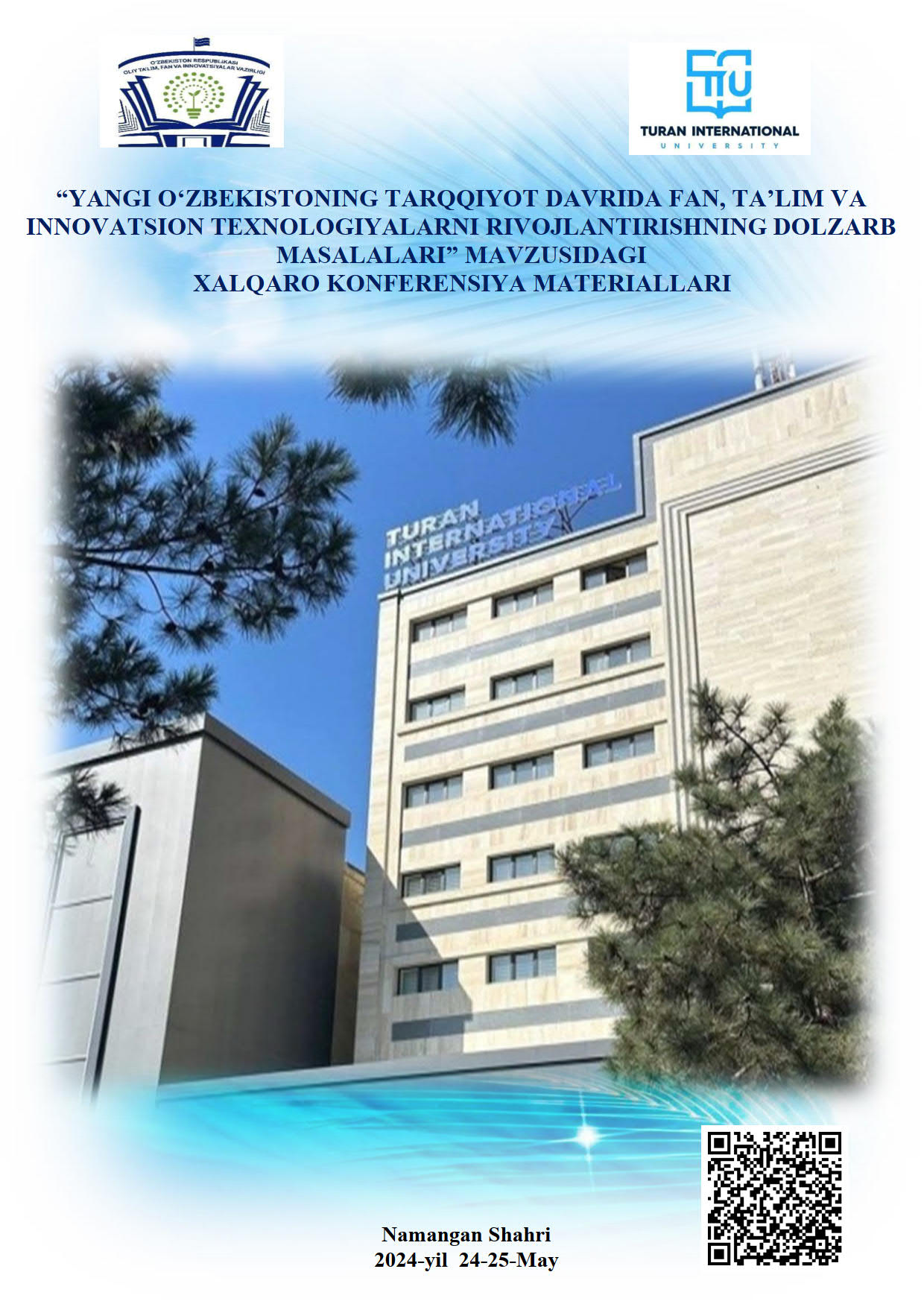INGLIZ VA O`ZBEK SIYOSIY DISKURSIDA EVFEMIZMLARNING QIYOSI
Annotasiya
Euphemisms are sentences that change and adapt depending on the time and cultural changes of people. In the following article, the various definitions given to it by the scientists who studied it and their several types will be explained. Euphemisms in the speeches of political figures published in both Uzbek and English political magazines are translated into Uzbek and English.
Kalit so‘zlar:
semantik ko`tarilish, metaforik ko`chish, kengaytirish, litota, tag ma`no, to`g`ridan-to`g`ri aytmaslik va mavhumlashBibliografik manbalar
Allan, Keith and Burridge K. (2006). Forbidden Words. Taboo and the Censoring of Language. Cambridge: Cambridge University Press.
Burridge, K. (2012). Euphemism and Language Change: The Sixth and Seventh Ages. URL: http://journals.openedition.org/lexis/355; DOI: https://doi.org/10.4000/lexis.355
Crespo-Fernández E. (2014). Euphemisms and political discourse in the British regional press. Brno studies in English
Fromkin, V. ( 2005).An Introduction to Language. New York: Thompson
Corporation.
Orwell, George (2006). Politics and the English Language. Peterborough: Broadview Press.
Pavlenko, A. (2006). Bilingual minds: emotional experience, expression and representation. Toronto: Multilingual Matters.
Rawson, H. (1995). A Dictionary of Euphemism & Other Doublespeak, second edition.
Ridwan, Yuliana and Murni, Sri Minda and Santoso, Didik. (2020). Euphemism Of Political News In Republika Online Mass Media. Jurnal Linguistik Terapan Pascasarjana, 17 (1). pp. 91-101. ISSN 0216-5139
Wardhaugh, Ronald. (2006). An Introduction to Sociolinguistics (Third edition). Oxford: Blackwell Publishers Ltd.
Wardhaugh, Ronald.( 2010). An Introduction to Sociolinguistics 6th Ed. Oxford:
Wiley- Blackwell.
Yuklashlar
Nashr qilingan
Qanday qilib iqtibos keltirish kerak
Nashr
Bo'lim
Litsenziya
Mualliflik huquqi (c) 2024 Jabborova Aziza Jobirovna

Ushbu ish Creative Commons Attribution 4.0 Worldwide.





